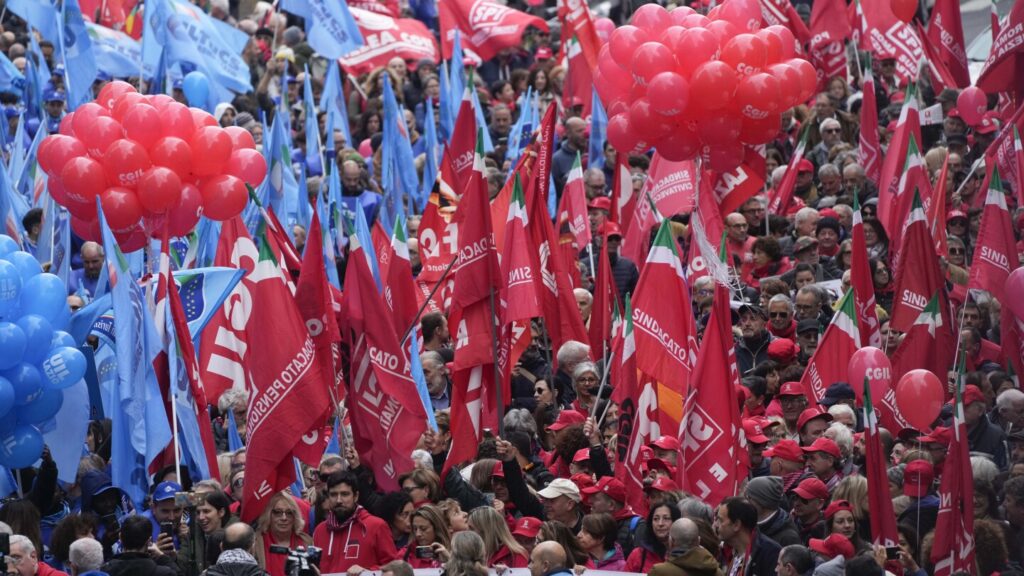Nationwide Strike in Italy: Workers Demand Action on Declining Living Standards
A Call for Change
On Friday, thousands of professionals, including educators, healthcare workers, sanitation employees, and others across Italy participated in a mass walkout to highlight their concerns regarding diminishing purchasing power and low wages. The protest also targeted government policies that many believe have jeopardized the quality of public services. The country’s leading labor unions organized this eight-hour strike and peaceful demonstrations in various cities, focusing on Prime Minister Giorgia Meloni’s recent budget proposal that unions argue adversely impacts education, healthcare, and essential services. Additionally, they are advocating for a fairer sharing of corporate profits with employees.
“These demonstrations are aimed not only at the government,” stated Maurizio Landini, leader of the influential CGIL trade union federation during a press briefing in Bologna. “They also send a message to business leaders and entrepreneurs who have enjoyed unprecedented profits over recent years.”
Impact on Daily Operations
The strike created significant disruptions across various sectors; ITA Airlines was compelled to cancel numerous domestic and international flights while schools remained closed alongside hospitals facing operational challenges. Although unions called for an extensive eight-hour strike period in transportation services, Transport Minister Matteo Salvini implemented restrictions that limited participation to four hours.
This was the first general strike since November of last year. Unions risked penalties for involving critical sectors such as healthcare and justice in this protest—sectors which have previously engaged in labor actions but faced exemptions from strikes.
Challenges Within Healthcare
Italy’s healthcare sector is currently grappling with workforce shortages prompting recruitment efforts from abroad to fill gaps—especially evident in southern regions where care standards trail behind those found in the wealthier northern areas. “Numerous individuals seek employment overseas due to insufficient salaries,” shared Anna Salsa from UIL Health Union during a rally held in Rome. “We find ourselves undertaking double shifts just to provide basic necessary care.”
Demonstrators voiced frustrations regarding soaring costs associated with everyday essentials too. While inflation rates show signs of improvement according to some reports, Codacons—a consumer advocacy group—revealed that grocery bills for an average family have surged by €238 (approximately $251) annually as compared to 2023 figures, forcing families nationwide to cut back on expenditures.
Wage Disparities Across Europe
Although entry-level salaries within Italy may be comparable to those seen throughout Europe initially, long-term wage growth has not kept up with rising costs or industry standards noted Maurizio Del Conte—a labor law specialist at Milan’s Bocconi University. Consequently, Italy’s average gross salary stands at €35,000 (nearly $37K), placing it significantly lower than pay averages among its G7 peers like France and Germany.
Del Conte remarked that historically these kinds of protests wield more influence when directed towards center-left administrations more sympathetic towards unions than conservative regimes led by figures like Meloni from the far-right spectrum.
Additional contributions come from Paolo Santalucia reporting out of Rome.
